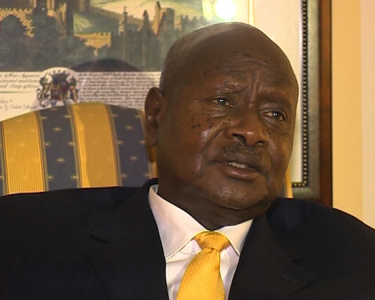 Idi Amin – Lion of Africa by Manzoor Moghal is an insight into the politics and character of a man who is notorious to this day for his nine-year rule over Uganda.
Idi Amin – Lion of Africa by Manzoor Moghal is an insight into the politics and character of a man who is notorious to this day for his nine-year rule over Uganda.
This book stands out from the many published about Idi Amin because it is written by someone who knew him and met him several times. Manzoor Moghal lived through Uganda’s independence, Amin’s rise to power and the first years of his brutal regime. He was one of the British Asians expelled from Africa in 1972.
His account begins with some background information about Amin and the situation after Uganda was granted independence from Britain. The two governments eventually failed because of their lack of respect for the status quo in a country that had for many years existed as a number of kingdoms.
I found some of the accounts of Amin’s rise to power chilling. One in particular stuck in my mind: “As I drove on the main streets of the city shortly afterwards I saw a number of army Land Rovers moving at great speed loaded with the bodies of dead and wounded soldiers, some hanging out from the back of the vehicles”.
One of the first things Amin did when he came to power was strengthen his connection with the largest of the kingdoms by retrieving the body of its former king from where he had been buried in exile and giving him a proper burial. He also declared his allegiance to Uganda’s Muslims and his intention to rule as a Muslim leader. Respecting Muslim traditions gave him a secure power base both inside Uganda and from surrounding Muslim nations.
After the coup most of his opponents were quickly and privately silenced, although a few were publicly executed. One friend of the author was chased down the street then tortured and executed in front of a watching and cheering crowd.
The first ethnic group Amin publicly attacked after coming to power was the Israelis. He forced them to leave Uganda because he had allied himself with Libya and the Arabs. At the time there were only a few hundred Israelis living in Uganda, so their expulsion didn’t cause a huge international outcry. But it was an omen of worse to come.
In 1971 Amin started to attack Uganda’s Asian community. He invited Asian representatives to the first ever national Asian Conference where they all pledged loyalty to him; but he used the opportunity to project his view that they were taking over Ugandan business to the extent that African Ugandans were unable to compete. He also criticised them for remaining aloof from the African population, asserting that Asian girls would get into trouble with their families if intermarriage occurred.
In August 1972 Amin told the Asian community that they had 90 days to leave. Over 40,000 of them were still British citizens and Britain complained that it could not take all of them. This left people worried about what they were going to do and where they would go. The author says, “My thoughts turned to what I was going to do to get my family out of the country.”
The Ugandan and British governments forced the Asians to go through days of paperwork, queueing and form filling before they were allowed to leave Uganda and fly to Britain. It was a bleak time and Moghal describes some of the atrocities that were committed. “The spectacle of Asian women and young girls being teased, taunted and molested by his (Amin’s) African officers seemed to give him particular pleasure.”
Moghal left Uganda with his family and Amin succeeded in reducing the Asian population to virtually nothing.
But he had not considered the effect this would have on Uganda’s economy. He relied on his alliance with Libya for troops and money and when Uganda was invaded by Tanzania in 1979 most of these troops ran away, leaving Amin powerless. He had made the mistake of trying to take land from a country with a bigger and more cohesive military than his own and this was the eventual reason for him having to step down from power and flee.
This book is a thought-provoking and accurate account of Amin’s rule and the author’s insider knowledge is invaluable.






